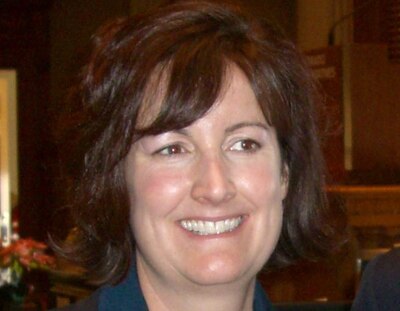| Tuesday roundup – College degree bills – Outdoors education bill – For the record |
Update March 3, 10 a.m. – The House voted 37-28 Wednesday for final approval of House Bill 10-1206, which would give students two voting seats on the Colorado State University Board of Governors.
Text of Tuesday story below
Colorado State University students took a step toward voting seats on the system’s board of governors Tuesday with preliminary House approval of House Bill 10-1206.
That’s one step farther than they went last year, when a similar measure, House Bill 09-1177, was killed in the House Education Committee.
Tuesday’s floor debate found Democrats and Republicans on both sides of the issue, arguing points about student conflict of interest, whether its actually better for students to just be board advisors and whether passing the bill would create pressure for similar changes on other governing boards.
Rep. Carole Murray, R-Castle Rock, led the charge against the bill, arguing that college boards should have disinterested voting members and saying students don’t fit that definition because they pay tuition. (Several bill supporters argued that’s exactly why students should have a vote, because tuition now is the largest part of CSU’s revenue.)
Prime sponsor Rep. Randy Fischer, D-Fort Collins, defended the bill and told his colleague that the students “will be back again if this bill doesn’t pass.”
The bill passed on a standing vote, and then a procedural move by Murray to defeat the bill failed on a 28-35 vote. The House will have to take a final, roll-call vote on the measure before it can go to the Senate.
The bill would convert the two student representatives on the board into full voting members. The students, one from the Fort Collins campus and one from Pueblo, would have to be juniors, seniors or grad students and would be appointed to terms of one academic year. Student governments and administrations could suggest candidates to the governor for appointment. The board’s two faculty members would remain non-voting.
CSU administrators and the board oppose the bill. Lobbyist Mike Feeley, a Democratic former senator, is representing them. According to disclosure records, he has been paid $6,220 by the university so far this session. Feeley is with the politically influential firm of Brownstein Hyatt Farber Schreck.
Senate advances Mesa, Colorado Mountain degree bills
Mesa State College wants to award graduate degrees, two-year Colorado Mountain College wants to offer bachelor’s degrees, and the Senate thinks both of those initiatives are fine ideas.
Senators voted preliminary approval Tuesday to Senate Bill 10-079, which would allow Mesa to get into the grad school business – but with limitations. The Senate approved a floor amendment that includes the phrase “a limited number of professional and technical degree programs.”
The four-year college is anxious to offer degrees that meet workforce needs on the Western Slope, such as teachers of nursing. “This is fundamentally an access program,” said Senate Minority Leader Josh Penry, R-Grand Junction. “You have tremendous demand for these programs.”

On Monday the Senate gave a preliminary OK to Senate Bill 10-101, which now has been amended to allow Colorado Mountain College, a two-year local district college that serves the central mountains, to offer no more than five bachelor’s degrees appropriate to the needs of its service area and approved by the Colorado Commission on higher Education. An amendment also sets out a list of standards CMC must meet for CCHE approval.
Although both bills have long lists of cosponsors, they’ve caused some heartburn about institutional “mission creep” and whether such decisions should be put off until after the current higher education strategic planning process is finished at year’s end.
Department of Higher Education officials had opposed both bills, but lobbyist John Karakoulakis said Tuesday that the amendments fix the department’s concerns.
House tussles a bit over environmental ed bill
Despite Republican suspicions about untapped piggy banks and environmental hidden agendas, the House Tuesday voted preliminary passage of House Bill 10-1131, which would set up a grants fund for schools and programs that involve kids in outdoor environmental education activities.
This is one of several aspirational “gifts, grants and donations” bills floating around the legislature this session, and this one is a favorite of tireless child advocate Lt. Gov. Barbara O’Brien. It seeks to tap an unused cash fund at the Department of Natural Resources, plus future federal and private money, to pay for a program estimated to need about $100,000 a year.
Rep. Kent Lambert, R-Colorado Springs, suggested the DNR money should instead be swept into the general fund to help balance the state’s budget.

Concerned about the possible tone of such programs, Rep. Bob Gardner, R-Colorado Springs, proposed an amendment to require they also teach kids about responsible resource extraction. That failed.
Assistant Minority Leader David Balmer, R-Centennial, floated an amendment that would have required kids be taught about the environmental benefits of nuclear power. Noting French reliance on nuclear power, Balmer asked his Democratic colleagues, “If France is for it, it can’t be bad, right?”
An exasperated Rep. Judy Solano, D-Brighton, came to the microphone to say, “We do not need to get specific in this bill about particular curriculum items. This bill is to get kids outdoors.”
Balmer’s amendment also was defeated.
This bill passed on a voice vote. Prime sponsor Rep. Christine Scanlan, D-Dillon, is vice president for education at the Keystone Center, which among other programs operates the Keystone Science School.
For the record
The Senate Tuesday gave preliminary floor approval to Senate Bill 10-026, which would facilitate exchange of student data between the Department of Education and College in Colorado for the program designed to have middle school students develop individual career and academic plans. Also passed was Senate Bill 10-154, which changes the accreditation process for alternative schools serving high numbers of at-risk students.
In addition to passed Senate Bill 10-056, which would require school districts to provide to parents standardized information about both required and recommended immunizations, the House Education Committee Monday passed three other bills. They were:
- Senate Bill 10-058 – Expanded eligibility for nursing teacher loan forgiveness
- Senate Bill 10-018 – Creation of a program to provide award-winning schools with trophies and banners, to be funded by gifts
- Senate Bill 10-088 – Study of the average daily membership student count system, yet another proposal to be paid for by “gifts, grants and donations”
Use the Education Bill Tracker for links to bill texts and status information.
